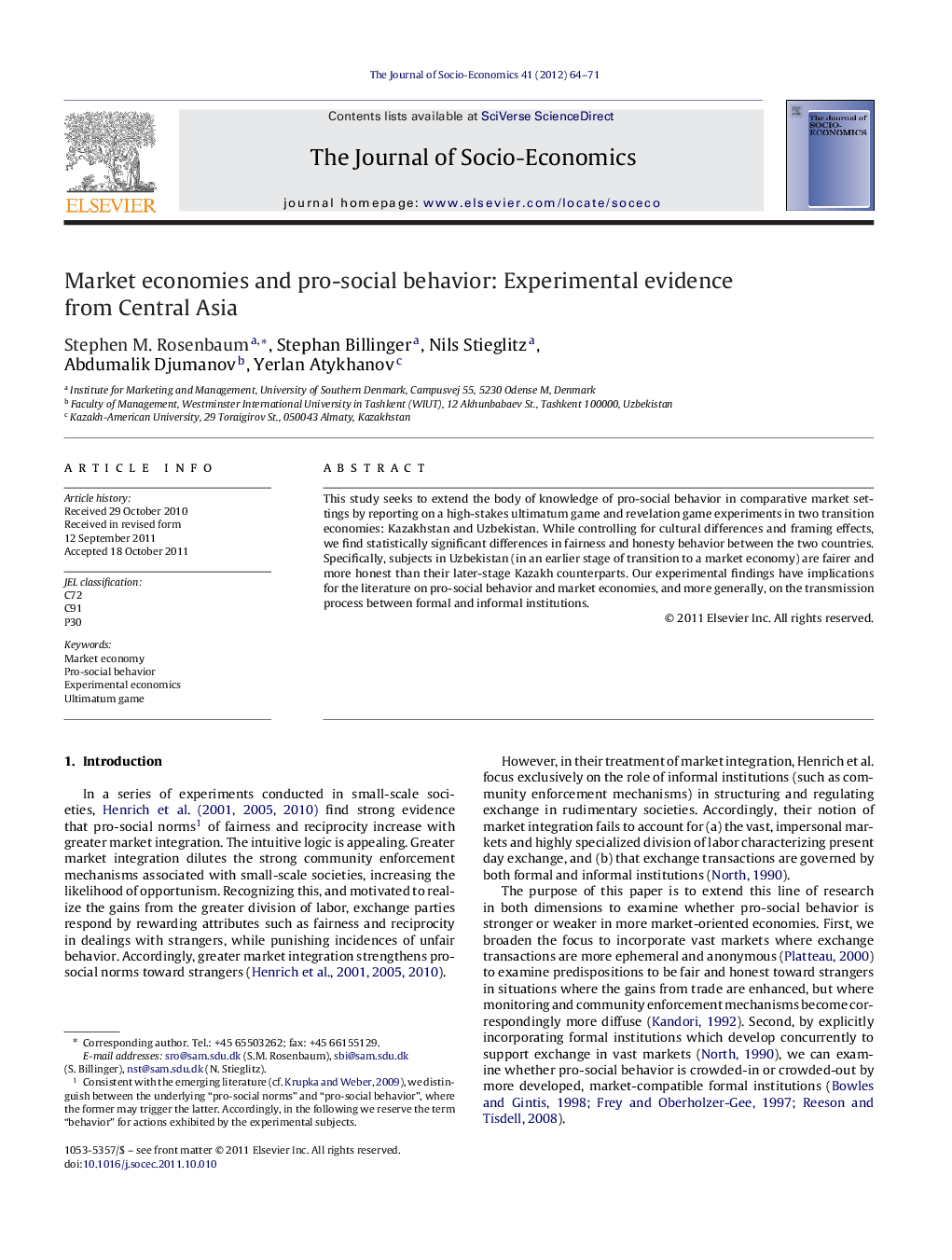| Article ID | Journal | Published Year | Pages | File Type |
|---|---|---|---|---|
| 971265 | The Journal of Socio-Economics | 2012 | 8 Pages |
This study seeks to extend the body of knowledge of pro-social behavior in comparative market settings by reporting on a high-stakes ultimatum game and revelation game experiments in two transition economies: Kazakhstan and Uzbekistan. While controlling for cultural differences and framing effects, we find statistically significant differences in fairness and honesty behavior between the two countries. Specifically, subjects in Uzbekistan (in an earlier stage of transition to a market economy) are fairer and more honest than their later-stage Kazakh counterparts. Our experimental findings have implications for the literature on pro-social behavior and market economies, and more generally, on the transmission process between formal and informal institutions.
► We examined the relation between pro-social behavior and degree of market integration. ► We conduct economic experiments tapping into fairness and honesty norms. ► Pro-social behavior appears weaker in more market-oriented economies. ► Pro-social behavior may be crowded-out by market- and institutional development.
